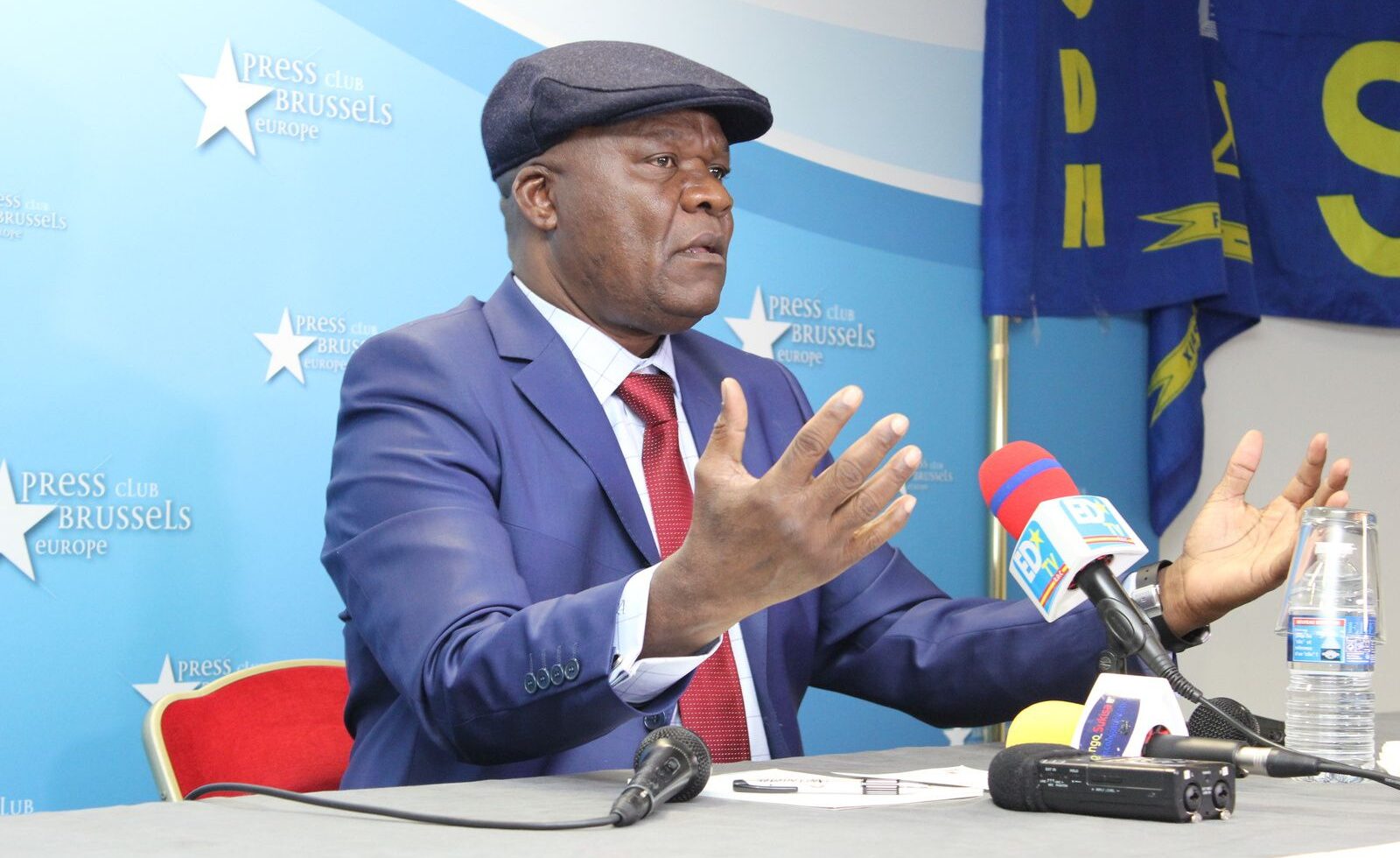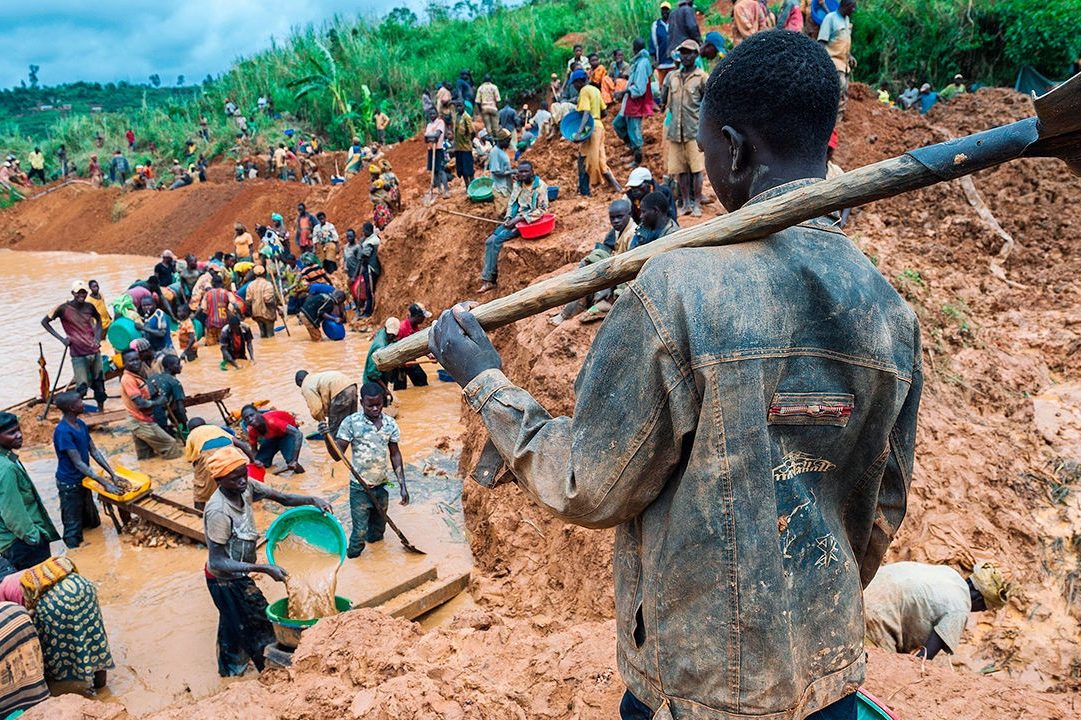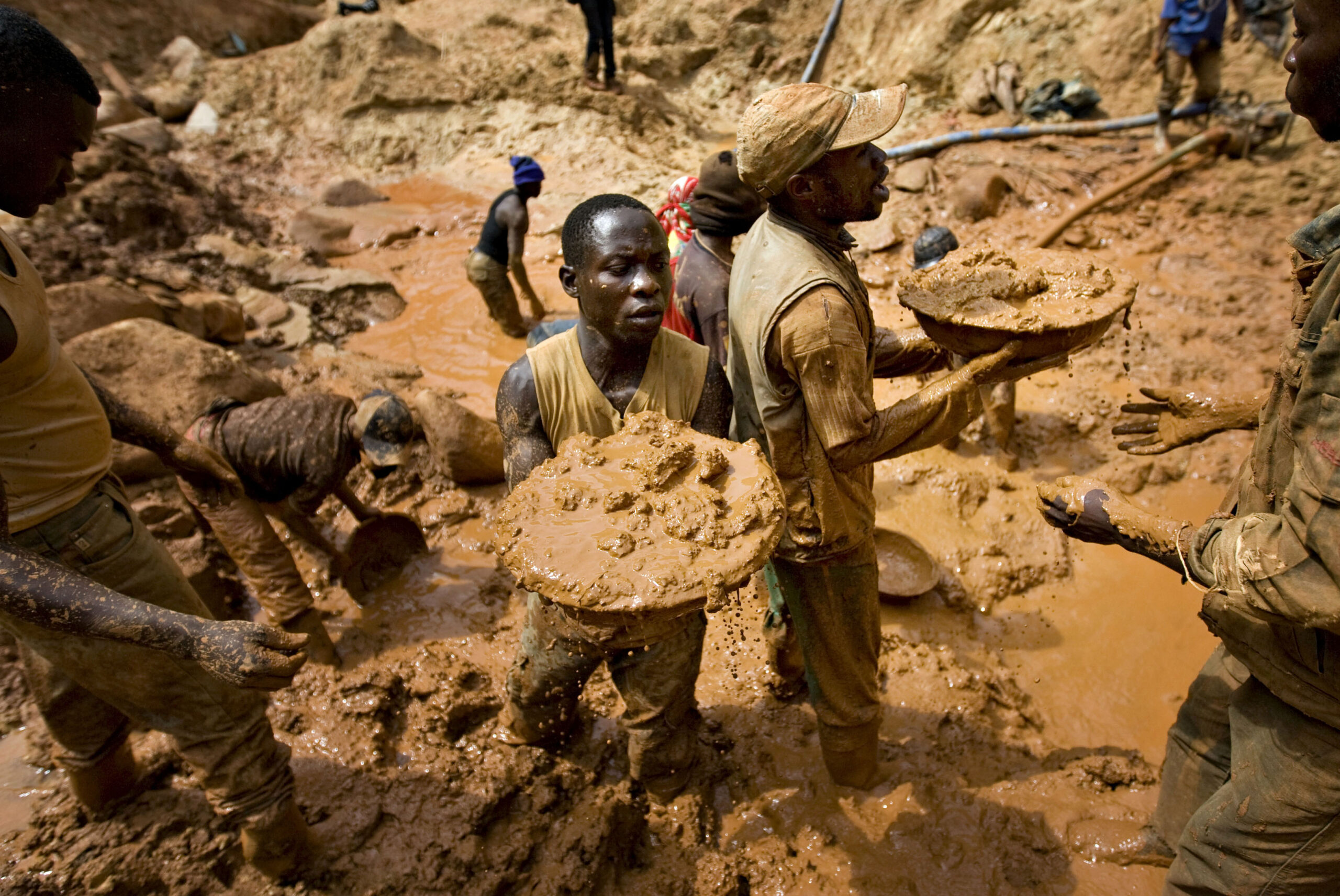Congo War
The Second Congo War (1998-2003) tragically left more than one million people dead.
For over twenty years, the Democratic Republic of Congo (DRC) has failed to take serious steps to investigate alleged crimes against humanity committed during the conflict, including murder, torture, rape, and enslavement. Two decades after the end of the war, however, the principle of universal jurisdiction, which allows countries to prosecute the most serious international crimes regardless of where they took place, is offering a significant opportunity to establish truth, deliver justice to survivors, and hold perpetrators of atrocities to account.

In December 2020, former Congolese warlord Roger Lumbala Tshitenga was arrested in Paris.
A judicial investigation against him was opened days later. Lumbala, a former DRC Minister of Commerce, led an armed group that is accused of committing crimes against humanity including murder, torture or other inhumane acts, rape as a form of torture, and enslavement in the DRC between 2002 and 2003.
CFJ is representing survivors of sexual and gender-based violence from the DRC who have testified at great personal risk against Lumbala. Through investigations led with international partners as well as our local partner Justice Plus, CFJ worked to identify survivors, helped them in their journey to France, and facilitated their testimony before a French investigative judge. CFJ also successfully requested that the judge include rape as a form of torture in the charges, to ensure that accountability for gender-based violence is at the heart of this case. The case is scheduled to go to trial in November 2025. CFJ has been admitted as a civil party in the proceedings.
The remarkable bravery exhibited by the survivors and their unwavering commitment to seeking justice has been the driving force in bringing this infamous militia leader to trial. The evidence provided by the survivors, including their testimonies before the investigative judge, has played a pivotal role in propelling the investigation forward, ultimately culminating in the indictment.
Past Work
This page contains information about work that was completed by CFJ prior to 2025. For more information on our current programs and events, read more about TrialWatch, Waging Justice for Women and The Albies.
Conflict Gold
Much of the conflict gold from the DRC is routinely smuggled to neighboring countries, where it is then purchased by international traders and buyers linked to a network of foreign corporations.
Many of these actors are complicit in human rights abuses and international crimes committed in the DRC, but have never been held accountable for their role in such atrocities. The Docket gathered evidence and has worked with relevant law enforcement agencies to seek accountability for those involved.
Our team supported prosecutors in opening a formal criminal investigation into the complicity of major European gold traders in atrocities committed by armed groups in the Great Lakes Region. Legal proceedings in market countries can disrupt the illicit trade of gold in resource-rich areas like the DRC by creating a precedent that those involved in illegal supply chains will be held accountable for their complicity in atrocities.

We can disrupt the source of money that funds conflict in the region by investigating individuals and businesses complicit in the illegal gold trade.
Despite increasing regulation of mineral supply chains, including supply chain transparency and due diligence laws, armed groups are still able to exploit the trade in conflict gold to fund their campaigns of violence and businesses complicit in trading in gold from conflict-affected areas go largely un-investigated and unprosecuted. The Docket’s work aims to disrupt this source of money by investigating individuals and businesses complicit in the illegal gold trade and triggering prosecutions against them.
